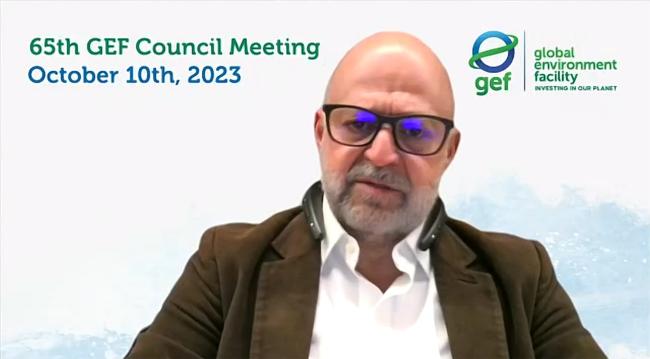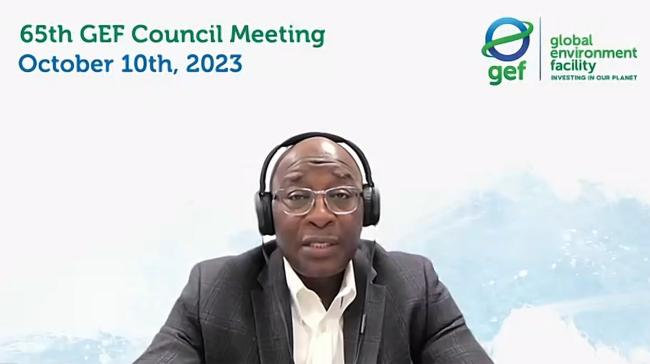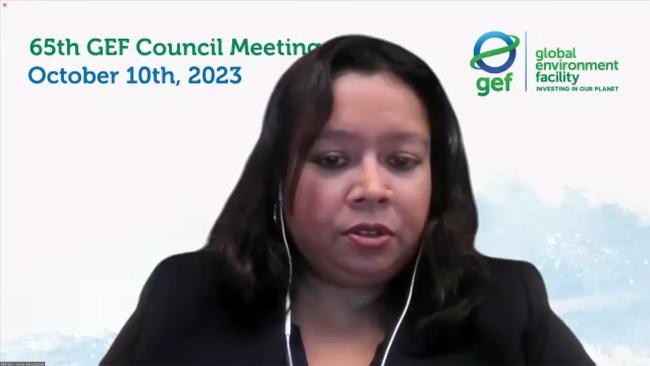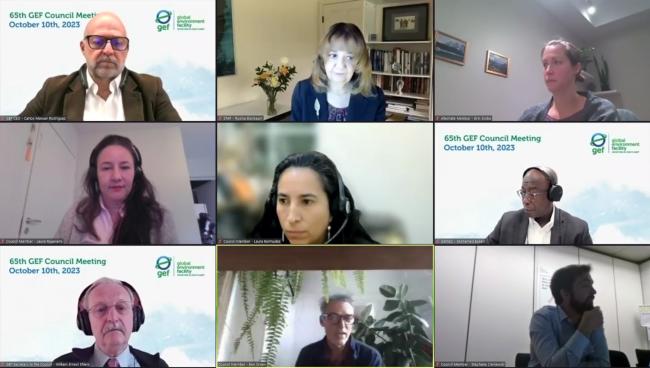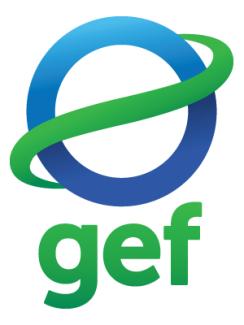The 65th meeting of the Council of the Global Environment Facility (GEF) took place in a virtual setting at a time when the work and role of the GEF seems more important than ever as humanity intensifies its efforts to address the triple crisis of climate change, biodiversity loss, and pollution. In June 2023, the 64th Council meeting adopted various decisions, including on: the establishment of the Global Biodiversity Framework Fund (GBFF); and preparing the GEF to serve as part of the financial mechanism for the new international legally binding implementing agreement, under the UN Convention on the Law of the Sea (UNCLOS), on the conservation and sustainable use of marine biological diversity of areas beyond national jurisdiction (BBNJ Agreement).
During the recently concluded Seventh GEF Assembly, Members unanimously agreed to ratify the GBFF, with some further announcing substantive contributions. The role of the GEF as a large multilateral environmental fund acting as the financial mechanism of several critical environmental conventions has become even more prominent following these developments and is expected to attract increasing interest within and beyond the environmental community.
The 65th meeting of the GEF Council focused on three agenda items deferred during the 64th meeting to allow time for substantive discussions. These included:
- GEF Strategy for Knowledge Management and Learning;
- Enhancing Policy Coherence through GEF Operations; and
- Relations with the Conventions and Other International Institutions.
On the GEF Strategy for Knowledge Management and Learning, Mohamed Bakarr, GEF Secretariat, presented the relevant document, noting that the strategy revolves around three main objectives: embedding knowledge into investments; increasing knowledge flows; and creating environments for learning and capacity building. Council Members voiced general support for the strategy, its objectives, and its strategic directions, further expressing support for stronger references to Indigenous and traditional knowledge. Moreover, there was general agreement on the need to harmonize the strategy and its action areas, including the establishment of a new knowledge and collaboration platform, with existing instruments and funds such as the Green Climate Fund (GCF).
On Enhancing Policy Coherence through GEF Operations, Sonja Teelucksingh, GEF Secretariat, presented the relevant document, emphasizing that in order to close the gap for nature financing, both increasing financial flows from multiple sources and reducing financial needs will be required. She stressed that enhancing policy coherence by promoting mutually reinforcing actions that create synergies has been recognized in the eighth replenishment of the GEF (GEF-8) and underscored the need for a whole-of-government approach. Many Members expressed support for the approach, noting it will increase efficiency and sustainability of GEF projects. Some Members stressed the need to take into account countries’ special circumstances and sovereignty, and further discussed whether the GEF should play the role of a central international data repository on the nature financing gap.
On Relations with the Conventions and Other International Institutions and regarding the GEF’s involvement in climate policy under the UN Framework Convention on Climate Change (UNFCCC), Members, among other things: stressed the crucial importance of aligning the GEF’s work with that of the GCF and the Climate Investment Funds to create synergies; and underscored the GEF’s vital contribution to preparation of Biennial Transparency Reports under the Paris Agreement and its support for the Capacity-building Initiative for Transparency. In relation to the Convention on Biological Diversity (CBD), many acknowledged the crucial role of the GEF in resource mobilization efforts. Moreover, various Members applauded the GEF’s involvement in the ongoing negotiations under the auspices of the Intergovernmental Negotiating Committee on Plastic Pollution as well as its role under the recently concluded Global Framework on Chemicals. More generally, many underscored the need to simplify access to finance across different areas and instruments, particularly for developing countries.
Council Members further finalized the composition of the Risk Appetite Statement Working Group, which will begin its deliberations in the week following the conclusion of the 65th Council meeting to develop a statement for consideration at the 66th Council meeting.
Delegates decided that the 66th Council meeting will take place from 5-9 February 2024 and the 67th Council meeting from 17-21 June 2024. Both meetings will take place in-person in Washington DC, with the possibility for virtual participation. The 68th Council meeting will take place virtually from 16-20 December 2024.
GEF CEO and Chairperson Carlos Manuel Rodríguez and Elected Chairperson, Tom Bui, Canada, thanked all participants for a productive session and closed the meeting at 11:38 am, Eastern Time Zone.
To receive free coverage of global environmental events delivered to your inbox, subscribe to the ENB Update newsletter.


